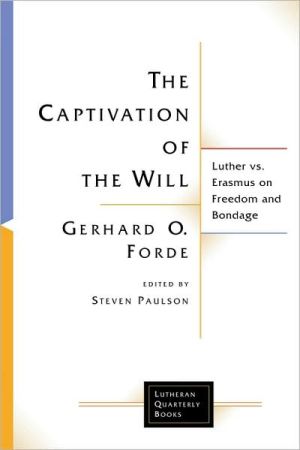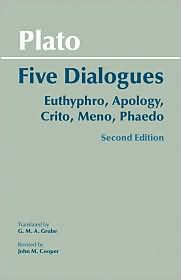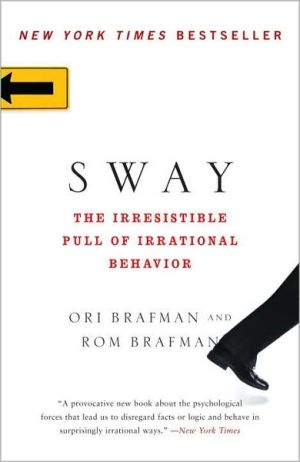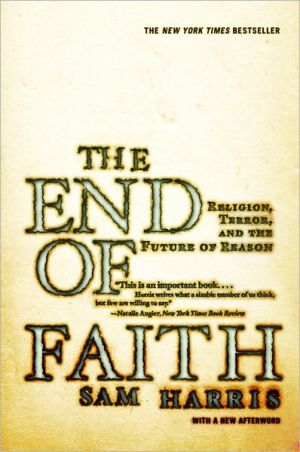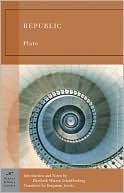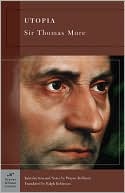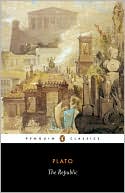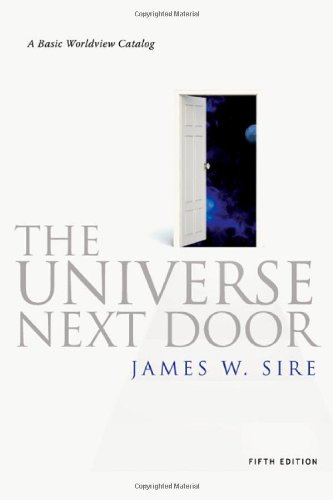Captivation of the Will: Luther vs. Erasmus on Freedom and Bondage
The Captivation of the Will provocatively revisits a perennial topic of controversy - human free will. Highly esteemed Lutheran thinker Gerhard O. Forde cuts to the heart of the subject by reexamining the famous debate on the will between Luther and Erasmus.\ Following a substantial introduction by James A. Nestingen that brings to life the historical background of the debate, Forde thoroughly explores Luther's Bondage of the Will and the dispute between Erasmus and Luther that it reflects....
Search in google:
"The Captivation of the Will" provocatively revisits a perennial topic of controversy human free will. Highly esteemed Lutheran thinker Gerhard O. Forde cuts to the heart of the subject by reexamining the famous debate on the will between Luther and Erasmus.Following a substantial introduction by James A. Nestingen that brings to life the historical background of the debate, Forde thoroughly explores Luther s "Bondage of the Will" and the dispute between Erasmus and Luther that it reflects. In the process of exposing this debate s enduring significance for Christians, Forde highlights its central arguments about Scripture, God, the will, and salvation in Christ. Luther recognized that the only solution for humans bound by sin is the forgiveness that comes from Christ alone. Convinced that this insight represents the heart of the Christian gospel, Forde concludes with ten sermons that proclaim the message of salvation through Christ alone while elegantly relating theological inquiry to everyday life.
THE CAPTIVATION OF THE WILL\ Luther vs. Erasmus on Freedom and Bondage \ \ By Gerhard O. Forde \ William B. Eerdmans Publishing Company\ Copyright © 2005 Wm. B. Eerdmans Publishing Co.\ All right reserved.\ ISBN: 0-8028-2906-6 \ \ \ \ Chapter One\ The Argument about Scripture \ If any one text defeats free choice, its numberless forces will profit it nothing. LW 33:161\ Fundamental to the argument over free choice is the question of the interpretation and authority of Scripture. Both Luther and Erasmus agreed that Scripture should be the arbiter in the dispute. Nevertheless, Luther complained that Erasmus did not stick strictly to the agreement because he insisted on calling the fathers, martyrs, holy men and women, and so on, to bear witness to the truth of his argument. Luther suspected Erasmus of expanding his argument beyond Scripture in this way in order to belittle Luther's argument by comparison. What could a little-known professor from a third-rate university out in the backwaters of the empire count against the great tradition and the mighty Erasmus? (Packer, 62).\ But the real problem came immediately to the fore in the fact that Luther understood the argument from Scripture in a manner radically different from that of Erasmus, and, we shall have to say, different from most modern exegetes ever since. Erasmus seems to have thought scriptural argument was a matter of collecting passages and authorities for and against the issue at hand and then weighing them and totaling up the "box score." It was a kind of "word study" method. The number of times a word occurs in a treatise is supposed to be of decisive import for its interpretation. Luther, however, was not at all persuaded or moved by such methods. The epigraph over this chapter leaves little doubt. Numbers do not and cannot settle the matter of powers of the will. If there were only one passage, one text against free choice, that single occurrence would be decisive. Characterizing Erasmus' method, Luther says:\ [A]fter having marshaled innumerable passages of Scripture like a very formidable army in support of free choice (in order to inspire courage in the confessors and martyrs and all the saints of both sexes on the side of free choice, and fear and trembling in all those who deny and sin against free choice), she [that is, the Diatribe] pretends there is only a contemptible little rabble against free choice, and actually allows only two passages [the hardening of Pharaoh's heart and the choice of Jacob over Esau]. (LW 33:161)\ Note carefully the language. Luther sees the controversy not as polite academic discourse but rather as a desperate battle. He suspects that the forces marshaled by Erasmus are intended not merely to inform but eventually to provoke fear and trembling in the "contemptible little rabble" foolish enough to attack free choice.\ Thus the nature of Luther's argument about Scripture and its authority begins to emerge. He is not interested merely in what Scripture says but in what it does, how it functions in the argument over free choice. We are dealing in these matters with "fear and trembling," with matters concerning what Luther called "the conscience." In such matters one passage is enough to shatter confidence and send one on the road to despair, one's hopes scattered to the winds. A simple question is all it takes: "Are you one of the elect? Do you really, sincerely believe?" Have you actually "done what is in you," as the Nominalists would say? And so on without end. A confident answer is not readily forthcoming. It can never be easily taken for granted. That is why just one passage can destroy confidence resting on innumerable passages asserting free choice. It is obvious from this opening discussion that the argument about Scripture leads to deeper dimensions of the faith. The claim that one passage is enough to "shake the foundations" of a faith built on free choice is likely only where reverence toward Scripture as Word of God is already present, at least in some form. Only on such a basis could Luther and Erasmus argue on common ground. But that is just the problem. Erasmus set out to win a debate. Luther sought to comfort and rescue the lost.\ Do they, in fact, argue on common ground? The debate sparked by Erasmus' ensuing argument about assertions in theology and the clarity of Scripture cracks the debate open. A few sentences by way of historical background will help to make this clear.\ The argument about assertions had been heating up in the disputes of 1515 and subsequent years. It was fanned into flame by the notorious Bull of Leo X (Exsurge Domine, June 1520) threatening Luther with excommunication. In the Bull, Leo had attacked Luther's "assertions." Prominent among these were "assertions" having to do with free choice and "doing what was in one." Luther had "asserted" that since the fall free choice has been a "mere title" that does not exist in reality, that anyone who seeks to "do what is in him" commits mortal sin, and that all things happen by divine necessity. There was no set of assertions, of course, so much designed to upset and enrage the "theologians" as these - be they scholastic or humanist. They struck at the heart of the Roman theological system. But Luther held his ground and responded to Pope Leo with further "assertions" in a treatise entitled Assertion on all the Articles of Martin Luther Recently Condemned by the Bull of Leo X.\ At this point Erasmus was finally persuaded to enter the lists. So the battle began in earnest. First we look briefly at the Erasmian position. It is, for the most part, an attempt to establish a viable scriptural position on the matter before the house. But Erasmus finds, like his followers today, that Scripture is not really up to the task. For an Erasmian, Scripture appears to confuse matters more than to solve them. Showing his humanist reserve, Erasmus declared himself to be uneasy with "assertions" and sought rather the coolness of abstractions and the academic discussion. He did not realize, apparently, that the assertions were confessions for Luther-matters of faith and conscience-about which there could be, in the end, no doubt. Doubt about these innermost matters exposed one to the assaults and terrors of the adversary. Doubt in these matters meant, for Luther, eo ipso the absence of salvation. If there was doubt about these innermost matters there could be no salvation.\ Luther was perfectly aware that there are many things about which one might be skeptical. There are unprofitable doctrines, useless opinions, and minor issues about which one is at liberty to doubt. But it is quite another matter if one is dealing with essential truths, with confessions upon which faith itself rests. Thus Luther can say that to take no pleasure in assertions and not to delight in them cannot possibly be a Christian position. "Take away assertions and you take away Christianity. Why, the Holy Spirit is given to the Christian from heaven in order that he may glorify Christ and confess Him even unto death" (LW 33:21). Indeed, the Spirit asserts to such purpose that he breaks in upon the whole world and convinces it of sin as if challenging it to battle. Erasmus' skeptical reserve simply will not do in matters of conviction and conscience. So Luther concluded his opening section with the famous words, "The Holy Spirit is no skeptic, and the things He has written in our hearts are not doubts or opinions, but assertions - surer and more certain than sense and life itself" (LW 33:24).\ Here we have the first indication of a major divide. For Luther God the Spirit is the active "player" in this drama. God acts through the Scriptures. The Scriptures are the Word of God, that is, they are not, as for Erasmus, mere words about God, but the Word from God. Mere words about God will be of a quite different sort and function than words from God. It is the burden of the argument in the Bondage of the Will that words about bondage intend to dominate and take control of the relationship. They inevitably take the shape of a defense mechanism against God. Scripture is treated as though it were material suitable for making a theory about the proper relationship between God and humans. This theory is then thought to be put into practice when human beings accept it and try to live according to it. But this is false theology in Luther's view, a theology of glory. Humans remain in control according to such a theory. Scripture becomes our tool by which we bring God to heel. The theory is used to make God our debtor. But then we are caught in the trap of our own making. It is as Isaac Singer was once heard to say, "We must believe in free will, we have no choice!" The drive toward freedom of choice ends in bondage. It is not the task of theology to construct a theory of God that is supposed to win us over by attractiveness. It is the business of theology to foster the preaching of the Word of God.\ We can therefore see that a major parting of the ways begins to announce itself already in the interpretation of Scripture and in the argument about assertions. It is hardly surprising to find that the opponents disagree on Scripture itself. Erasmus wants to use Scripture to build his theory. Since this theory is rooted in claims of free choice Erasmus cannot but find Scripture ambiguous and contradictory. Some passages in it appear to be for free choice and some appear to be against it. What is to be done? The interpreter must come to the rescue. The interpreter must go to work on the text to resolve the alleged contradictions. For Luther, as we shall see, it is just the opposite. The text goes to work on the interpreter to do what it talks about.\ It is consequent, therefore, that the argument about Scripture should take the form of a battle over the claritas, the clarity, of Scripture. This means, of course, that the fault is attributed to Scripture, not to the interpreter. The question, putatively, is whether Scripture is unclear, not whether the interpreter is unclear! The difficulty in the whole procedure lies in the fact that Scripture does not deliver "the goods" sufficient to turn the free choice theory into reality. The "scheme" drives only to a collision. To save the theory one must claim that the ambiguity is the fault of Scripture, not the fault of the interpreter. Interpreters of an Erasmian type are driven to take refuge in the Scriptures' supposed lack of clarity. Where one encounters passages casting doubt on free choice or rejecting it altogether one must take refuge in tropes, figures of speech that end up explaining those passages away. What Luther was doing with Scripture is a symbolic interpretation, not allegorical. The allegorical is an exegetical trick used when one already knows what the text means, but uses a trope to escape the text and preserve the initial theory in the face of clear words to the contrary.\ The general theory touted by Erasmus is the familiar moralistic one: If the will operates by necessity then everything is threatened by determinism. In that case, guilt cannot be assigned and striving for good cannot be rewarded. All passages in Scripture demanding choice or response are pointless and ridiculous if there is not some degree of freedom. The very fact that God has given us laws presupposes some power to respond to their demands, or else it is a mockery and nonsense. Furthermore, God is in the highest measure unjust if he imposes necessity on us and subsequently punishes us for deeds we could not avoid. Scripture simply will not support such a "theory," and so on and so on.\ But where God is the actor Scripture cannot be used in Erasmian fashion. The interpreter, Luther insists, is not given license to construct self-satisfying and pleasing theories about our relation to God by ironing out the supposedly unclear wrinkles in the text. The reason for such procedure is simply to make room for the freedom of the will. I take it that is why Luther speaks of a twofold lack of clarity and a double lack of light. Clarity becomes an issue, Luther maintains, because it is the interpreter who is unclear - not the Scripture. The interpreter, therefore, must be called to account before the Scripture. The reason for the twofold unclarity is that when the would-be interpreter sets out to find room for the freedom of choice he misreads both himself and the scriptural Word. The interpreter attempts to overpower Scripture and so stifles Its message. Luther uses the idea of a twofold clarity (and the lack of it) in analyzing the problem.\ The first sort of clarity Luther called the "external" clarity of Scripture. External clarity has to do with Luther's insistence that Scripture is crystal clear over against the Erasmian claim of ambiguity. When Luther speaks of external clarity he generally refers to the ministry of the Word and the basic doctrine and narrative of the church- the Scriptures, creeds, sacred history, and so forth. He refers to this as "the subject matter" of the church's witness. He means the "what" of the message, and insists that it is in itself perfectly clear. This means that "the profoundest mysteries of the supreme Majesty are no more hidden away.... 'The veil remains on their heart,'" 2 Corinthians 3:15 (Packer, 72).\ The fact that obscurity still "veils" the meaning of some texts is due not to lack of clarity in the texts but rather to our "ignorance of their terms" or "ignorance of their vocabulary or grammar." Once again we see that even on the level of the "external" clarity Luther refuses to lay the blame for whatever lack of clarity may emerge on Scripture. It is due rather to ignorance of grammar and/or laziness in exegetical effort.\ But the second dimension of the clarity problem is the source of even more trouble. This Luther refers to as the "internal clarity" of Scripture and has to do with the understanding of the heart. Here we return To what was only hinted at earlier: that we need the Holy Spirit not because the Scriptures are so unclear but rather because they are so clear! Thus Luther could say,\ If you speak of the internal clarity, no man perceives one iota of what is in the Scriptures unless he has the Spirit of God. All men have a darkened heart, so that even if they can recite everything in Scripture and know how to quote it, yet they apprehend nothing of it. They neither believe in God, nor that they themselves are creatures of God, nor anything else, as Psalm 13 [14:1] says: "The fool has said in his heart, 'There is no God.'" For the Spirit is required for the understanding of Scripture, both as a whole and in any part of it. If on the other hand, you speak of the external clarity, nothing at all is left obscure or ambiguous, but everything there is in the Scriptures has been brought out by the Word into the most definite light, and published to all the world. (LW 33:28)\ (Continues...)\ \ \ \ \ Excerpted from THE CAPTIVATION OF THE WILL by Gerhard O. Forde Copyright © 2005 by Wm. B. Eerdmans Publishing Co..\ Excerpted by permission.\ All rights reserved. No part of this excerpt may be reproduced or reprinted without permission in writing from the publisher.\ Excerpts are provided by Dial-A-Book Inc. solely for the personal use of visitors to this web site. \ \
ForewordIntroduction : Luther and Erasmus on the bondage of the will11The argument about scripture232The argument about God313The argument about our willing474The argument about Christ and salvation61SermonsThe easy yoke83Justification by faith alone86A word from without91On getting out of the way for Jesus94The perilous journey99Go away, Jesus!102I chose you105On death to self108We are being transformed112What matters116
